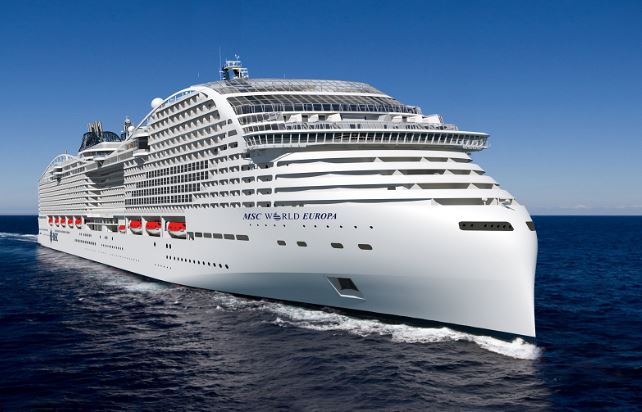French shipbuilder Chantiers de l’Atlantique has completed the installation of an exhaust gas cleaning system (EGCS) on three vessels operated by Swiss-based cruise line MSC Cruises as part of the net-zero drive.
The latest installation of EGCS occurred on MSC Cruises’ ship MSC Musica at the port of Brindisi in Italy.
The 92.409 GT cruise ship MSC Musica was the third and last ship of the contract signed in 2016 for retrofit including design, procurement, installation, and commissioning of the ECGS and open/closed loop process plants onboard the ships, including MSC Orchestra in 2018 and MSC Poesia in 2019.
The installation of the ECGS on board MSC Musica has been approved by Bureau Veritas as complying with MARPOL VI regulations.
The system, which belongs to EGCS’ hybrid type, is expected to remove up to 97% of sulfur oxides (SOx) from the exhaust gasses of 3 diesel generators delivering a total power of 11.6 MW, the company claims.
Specifically, this means that it can operate either in open or close loop, avoiding any discharge of washed water when in port and consequently
any release of harmful effluents into the marine environment.
“The completion of this contract demonstrates again the willingness of our company to support the ships we build throughout their operational lifecycle with the latest and most environmentally friendly upgrades,” François Lally, SVP, Services Business Unit of Chantiers de l’Atlantique, said.
“We continue to make every effort possible to reduce the environmental impact of our vessels by installing the … technology like EGCS with the support of … partners like Chantier de l’Atlantique,” Emilio La Scala, President and Managing Director of MSC Cruises, added.
“Sustainability remains at the heart of our business model and operations, and we will always look for ways to lead the global maritime and cruise industry in this regard.”
Last month, Chantiers de l’Atlantique also announced that it has cut the first steel for MSC Euribia, marking the official construction start of what MSC Cruises has described as its most environmentally advanced ship.
Source: Offshore Energy






